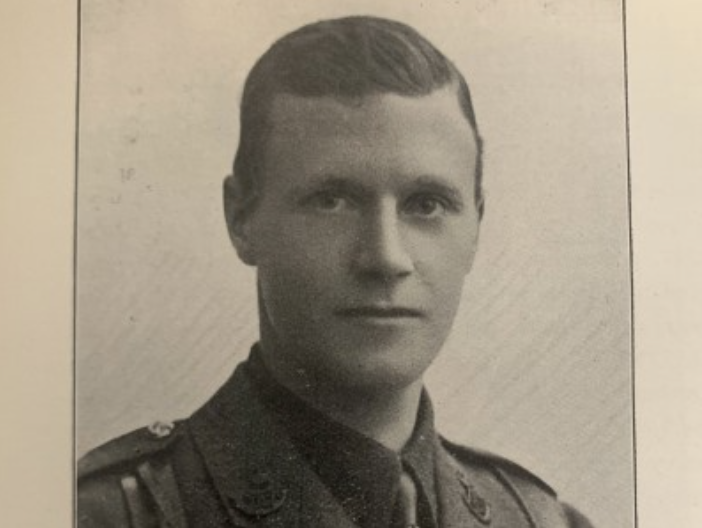
On a hill overlooking Durham City, Castle and Cathedral, sits Durham School Chapel. Built as a War Memorial, the Chapel commemorates the former pupils of Durham School who have died in the service of their country. Nearly 200 names are carved into its pillars, including poets Hodgson and Oxland, and international rugby players Maynard, Dingle and Humphreys. Among the names of the many lives cut short during the First World War, is inscribed that of Lt. Alick Todd, who died after his aircraft crashed behind enemy lines in 1917.
Alick was born in Penshaw, County Durham in 1892. The son of local dentist, Edward Todd, he joined Durham School as a boarder in School House in May 1909. Over the next three years he excelled academically, and also represented the School at rowing and rugby.
After Durham School he read Classics at Durham University, graduating with a Second Class Honours. While at University he was a member of the University College Shooting Eight, and at the University Officer Training Corps. At the outbreak of war, Alick joined the 4th Durham Light Infantry, as a 2nd Lieutenant. In May 1915 he was wounded at Richebourg l’Avoue, and then wounded again in January 1916. Shortly afterwards Alick was promoted to Lieutenant. In October of the same year he received the Military Cross.
The London Gazette said:
Lieutenant Todd went over our barrier in broad daylight to reconnoiter the enemy’s barrier fifty yards away. On the following day he organised and carried out two successful bombing attacks. He had to go a long way under shell fire while making the arrangements with another unit, and was without food for 24 and without sleep for 28 hours.
In March 1917, Lieutenant Alick was attached to the Royal Flying Corps, the forerunner of the RAF. Alick became a gunner, a perilous occupation with a high mortality rate. Alick, was shot down behind enemy lines on 12 April 1917. The pilot of the aircraft, Lt Maxted, survived, but Todd died four days later from wounds sustained in the crash. He is buried Sauchy-Cauchy Communal Cemetery Extension, Pas de Calais, France. His tombstone bears the inscription - ‘Rest dear son, thy labour is o’er, thy willing hands will toil no more’.




